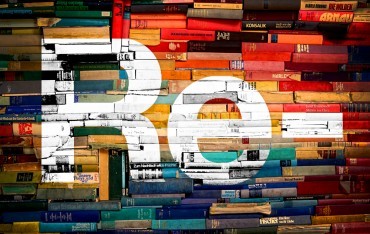Re - 21 November 2018 - Replicas: Perspectives from the History of Art and Science
Duration: 1 hour 47 mins
Share this media item:
Embed this media item:
Embed this media item:
About this item

| Description: |
Can there be copying without loss? If so, what is the ontological difference between the ‘original' and the ‘copy’?
Collaborators Adam Lowe and Simon Schaffer in conversation about the artistic science or scientific art of copying. Adam Lowe (Artist and Founder of Factum Arte, Madrid, Royal College of Art 1985) Adam Lowe is an artist and founder of Factum Arte (Madrid; London; Milan). Factum Arte consists of a team of artists, technicians and conservators dedicated to digital mediation – both in the production of works for contemporary artists and in the production of facsimiles as part of a coherent approach to preservation and dissemination. Factum Arte’s non-contact methodologies are having a growing impact on the world of conservation and are defining the role facsimiles play in in the protection of our cultural heritage. Major projects include the installation of an exact facsimile of the burial chamber of Tutankhamun into a new building at the entrance to the Valley of the Kings (2004); the facsimile of Paolo Veronese’s The Wedding at Cana (2006), Marina Abramovic’s Seven Stages of Maya Dance (2018) and a proposal to save the Whitechapel Bell Foundry in London from redevelopment (2018). More details on the project, which Prof. Schaffer is also involved in, can be found here: http://www.factum-arte.com/resources/files/ff/project_related_materials/factum-foudation-definitive-proposal-the-resurrection-of-the-whitechapel-bell-foundry-screen.pdf https://www.christies.com/features/Master-of-reproduction-Adam-Lowe-and-Factum-Arte-6776-1.aspx: https://www.bloomberg.com/news/features/2018-03-29/adam-lowe-of-factum-arte-makes-the-art-of-the-world-s-superstars. Professor Simon Schaffer (History and Philosophy of Science, Cambridge) Aesthetics of universal knowledge, co-ed., 2017; The politics of technoscience 2017; The Material Culture of Enlightenment Arts and Sciences, co-ed., 2016). Simon Schaffer is Professor of the History of Science and the University of Cambridge. He is the author and co-author of numerous books, including the Erasmus Prize-winning Leviathan and the Air-Pump: Hobbes, Boyle, and the Experimental Life (2005) with Steven Shapin; the Aesthetics of Universal Knowledge, co-editor with John Tresch and Pasquale Gagliardi (2017); The politics of technoscience, special issue of Radical History Review 127 (2017); and The Material Culture of Enlightenment Arts and Sciences (2016). He has been a presenter on the BBC, e.g. the series Light Fantastic (BBC Four, 2004) and was editor of The British Journal for the History of Science from 2004 to 2009. In 2013 he received the Sarton Medal and in 2018 the Dan David Prize. Professor Schaffer is a long-lasting collaborator with Factum Arte, notably with N01SE, a multi-site exhibition about information and transformation, which opened at the Whipple Museum and Kettle's Yard in Cambridge in 2000, and the proposal to save the Whitechapel Bell Foundry in London. Part of the ‘Re-‘ Network series Beyond Originals and Copies. CRASSH is not responsible for the content of external websites Open to all. No registration required Part of 'Re-' Interdisciplinary Network series Administrative assistance: networks@crassh.cam.ac.uk |
|---|
| Created: | 2018-12-03 10:33 |
|---|---|
| Collection: | ‘Re-’ Interdisciplinary Network |
| Publisher: | University of Cambridge |
| Copyright: | Glenn Jobson |
| Language: | eng (English) |
| Keywords: | Adam Lowe; Simon Schaffer; CRASSH; Re; |
| Abstract: | Can there be copying without loss? If so, what is the ontological difference between the ‘original' and the ‘copy’?
Collaborators Adam Lowe and Simon Schaffer in conversation about the artistic science or scientific art of copying. Adam Lowe (Artist and Founder of Factum Arte, Madrid, Royal College of Art 1985) Adam Lowe is an artist and founder of Factum Arte (Madrid; London; Milan). Factum Arte consists of a team of artists, technicians and conservators dedicated to digital mediation – both in the production of works for contemporary artists and in the production of facsimiles as part of a coherent approach to preservation and dissemination. Factum Arte’s non-contact methodologies are having a growing impact on the world of conservation and are defining the role facsimiles play in in the protection of our cultural heritage. Major projects include the installation of an exact facsimile of the burial chamber of Tutankhamun into a new building at the entrance to the Valley of the Kings (2004); the facsimile of Paolo Veronese’s The Wedding at Cana (2006), Marina Abramovic’s Seven Stages of Maya Dance (2018) and a proposal to save the Whitechapel Bell Foundry in London from redevelopment (2018). More details on the project, which Prof. Schaffer is also involved in, can be found here: http://www.factum-arte.com/resources/files/ff/project_related_materials/factum-foudation-definitive-proposal-the-resurrection-of-the-whitechapel-bell-foundry-screen.pdf https://www.christies.com/features/Master-of-reproduction-Adam-Lowe-and-Factum-Arte-6776-1.aspx: https://www.bloomberg.com/news/features/2018-03-29/adam-lowe-of-factum-arte-makes-the-art-of-the-world-s-superstars. Professor Simon Schaffer (History and Philosophy of Science, Cambridge) Aesthetics of universal knowledge, co-ed., 2017; The politics of technoscience 2017; The Material Culture of Enlightenment Arts and Sciences, co-ed., 2016). Simon Schaffer is Professor of the History of Science and the University of Cambridge. He is the author and co-author of numerous books, including the Erasmus Prize-winning Leviathan and the Air-Pump: Hobbes, Boyle, and the Experimental Life (2005) with Steven Shapin; the Aesthetics of Universal Knowledge, co-editor with John Tresch and Pasquale Gagliardi (2017); The politics of technoscience, special issue of Radical History Review 127 (2017); and The Material Culture of Enlightenment Arts and Sciences (2016). He has been a presenter on the BBC, e.g. the series Light Fantastic (BBC Four, 2004) and was editor of The British Journal for the History of Science from 2004 to 2009. In 2013 he received the Sarton Medal and in 2018 the Dan David Prize. Professor Schaffer is a long-lasting collaborator with Factum Arte, notably with N01SE, a multi-site exhibition about information and transformation, which opened at the Whipple Museum and Kettle's Yard in Cambridge in 2000, and the proposal to save the Whitechapel Bell Foundry in London. Part of the ‘Re-‘ Network series Beyond Originals and Copies. CRASSH is not responsible for the content of external websites Open to all. No registration required Part of 'Re-' Interdisciplinary Network series Administrative assistance: networks@crassh.cam.ac.uk |
|---|---|

